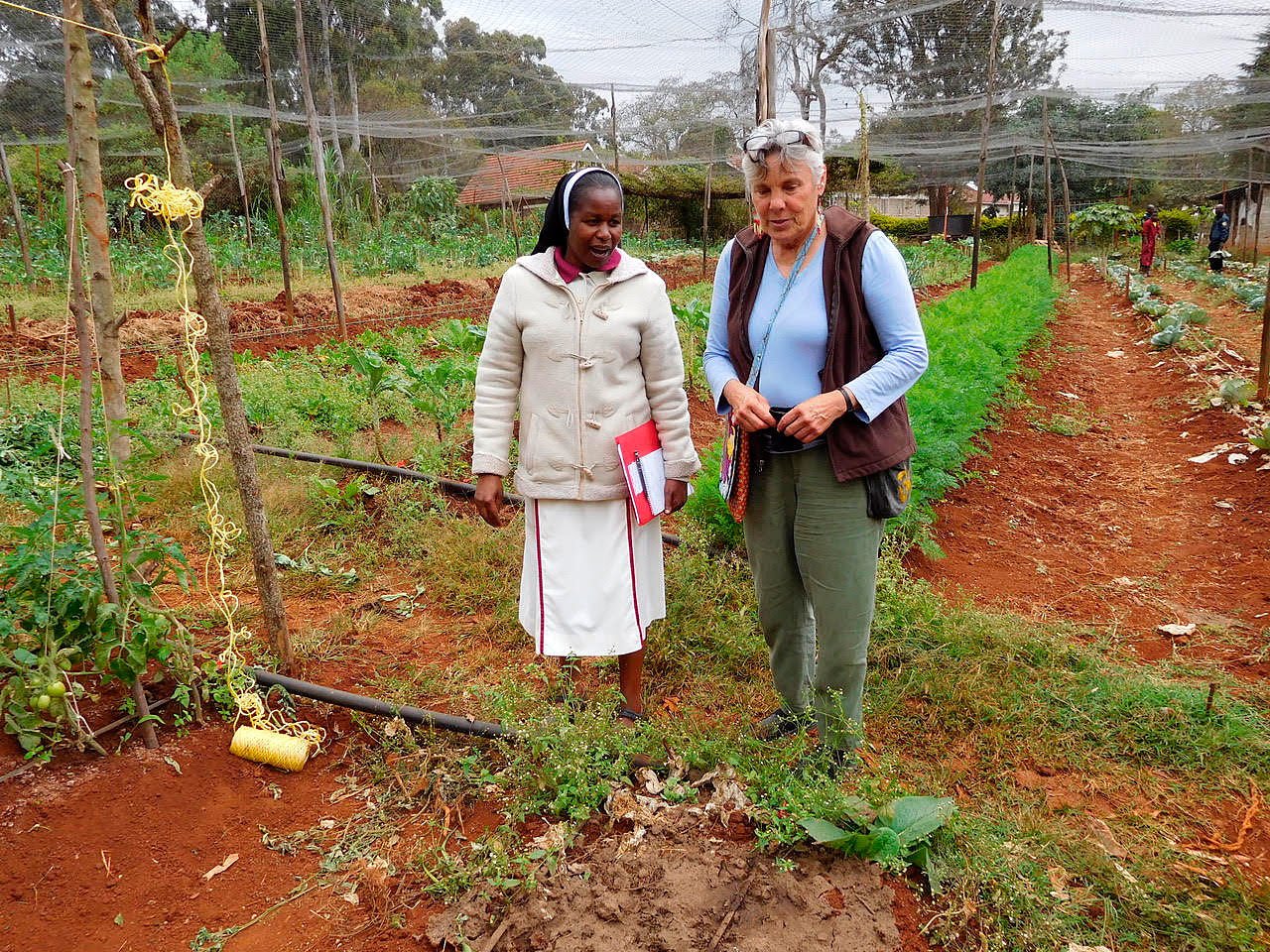Clinton farmer Anza Muenchow never thought she’d make it to Africa.
But when an opportunity came around for a trip to Kenya to work with small-scale farmers and the aid workers who support them, she grabbed it with both hands.
“It was my first time in Africa, and I had no idea what I was getting into,” Muenchow said. “I just thought I should push the envelope and say ‘why not?’ ”
Muenchow is the Supplemental Nutrition Assistance Program (SNAP-Ed) coordinator for Washington State University Island County extension. She traveled to Kenya in September to participate in the farmer-to-farmer program, which is operated by Catholic Relief Services. The idea is to promote agriculture in developing countries by connecting American farmers with their counterparts around the world. The former, along with agribusiness professionals, provide expertise to help advance sustainability, improve productivity and access new markets.
The cultural exchange isn’t one-sided, however; American agriculturists also pick up different skills from farmers in developing countries.
“It was inspiring to see what these small-scale farmers are doing in their communities,” Muenchow said. “We wanted to find ways to help them improve their system, and give them guidelines to allow them to do it themselves in the future.”
Muenchow is holding a presentation about her experience in East Africa at the annual South Whidbey Tilth membership meeting. She will discuss the challenges Kenyan farmers face, and compare those concerns with issues farmers face here on South Whidbey. Muenchow plans to highlight a handful of community farmers whose skills she was impressed with, as well as discussing Kenyan small-scale farming and community gardening.
The meeting is at 4 p.m. Sunday, Jan. 29 at Grigware Hall in Trinity Lutheran Church community building in Freeland. The event is free, and a potluck will follow.
Muenchow’s travels took her to three areas of Kenya. The journey began in the bustling capital of Nairobi, where she visited community gardens and a Catholic convent on the outskirts of the city. Muenchow said getting there was the tricky part. The traffic in the metropolis was chaotic and the roads were bumpy. But, she was impressed with what she saw at the convent garden, considering Kenyans “don’t have a Bayview Farm and Garden” for all of their farming needs.
“The soil there is somewhat depleted, but that’s mostly due to the fact that they’ve been farming the land for 10,000 years,” Muenchow said. “It’s the cradle of civilization.”
Her next stop was the town of Meru, which sits on the slopes of Mount Kenya and has scenic views of surrounding snow-capped mountains. Muenchow met with farmers and different aid groups to learn about the pests farmers have to fend off on a regular basis, such as monkeys and even elephants, which apparently have a taste for pumpkins. There she got a better idea of what a farmer’s life is like in Kenya, since Meru is a much smaller city than the capital and more agrarian. To wrap things up, she visited the city of Eldoret and the surrounding Great Rift Valley, the birthplace of mankind.
South Whidbey Tilth President Susan Prescott says this isn’t the first experience Muenchow has had getting her hands and knees dirty with international farming communities. Muenchow worked directly with Hmong farmers in Seattle, and her Kenya trip is just another “twist” in her story, Prescott said.
“She’s a very good teacher, is dynamic and always inspiring, so it’ll be interesting to hear what she learned and what she taught others,” Prescott said. “I think it’s important for farmers from around the world to exchange ideas. It’s broadening to hear stories from other cultures.”
Muenchow said community gardens are much more prominent in Kenya due to a greater reliance on subsistence farming to produce food for one’s family. An interesting facet of community farming she learned about was balancing a family’s own nutritional needs with taking their remaining crop to the market. She worked with the communities to help make their processes more productive, so they could more reliably grow their own food while making more profit. Productivity is crucial in many of the cities and villages she visited, since many farmers trade their crops for their children’s tuition. School is not free in Kenya.
Although a world away, Muenchow said Kenyan farmers face many of the same problems farmers on South Whidbey do. Access to good seed and water is a central issue for any farmer, as well as access to the market. Finding a place to sell is often made more difficult without the internet, which many of the farmers she met didn’t have. Comparing the similarities and differences between the issues Kenyan and American agriculturists face will be a talking point at her discussion.
But, Muenchow said we can learn from the small-scale farmers she met. While most of her trip was for the experience of seeing a new continent through her passion of farming, she said Americans can take note of the more localized food system in Kenya.
“We’re growing more and more removed from growing our own food, but they’re much more connected to what they eat,” Muenchow said. “Many people are still farming as their grandparents and their ancestors did. Maybe we can learn from that.”



